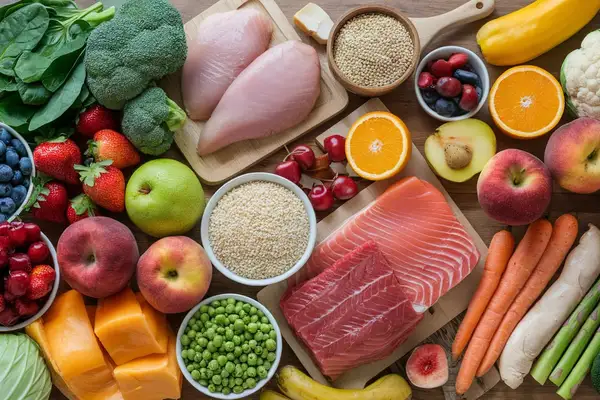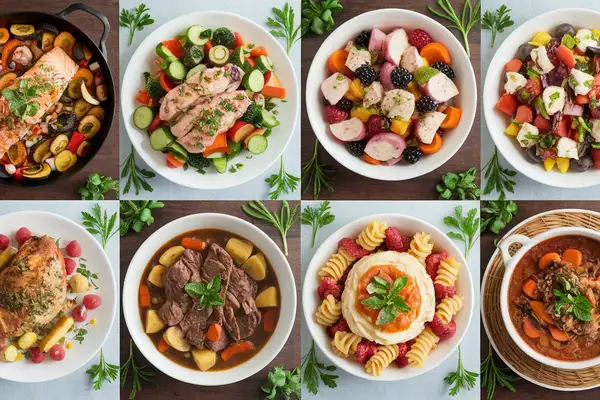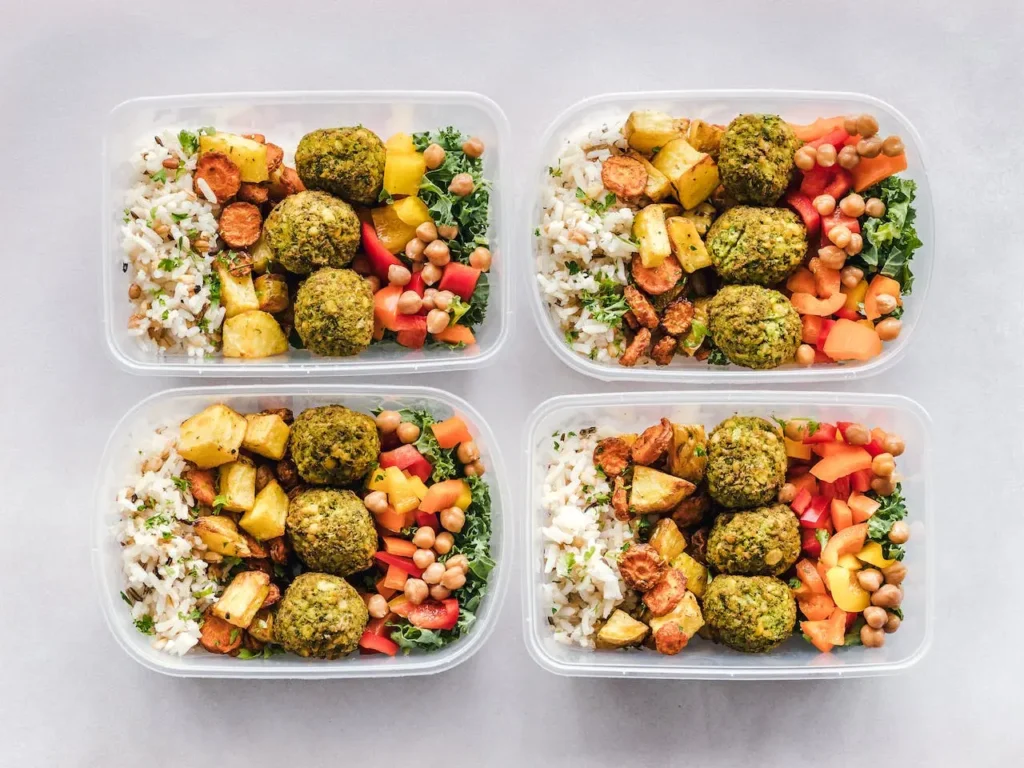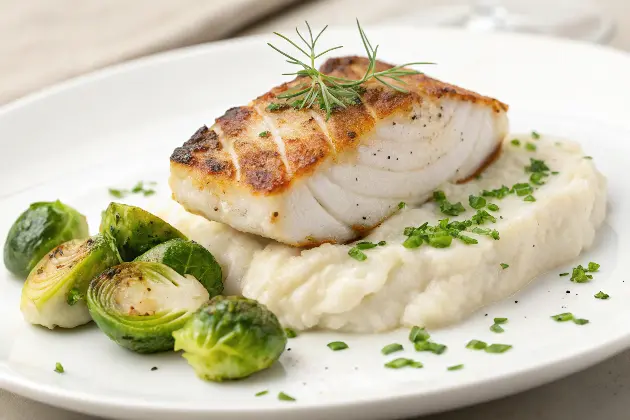Healthy No Carb Diet Plan for 2 Weeks
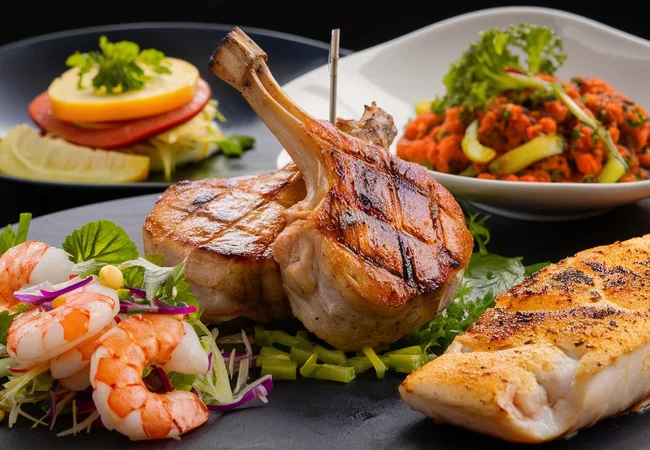
This post may contain affiliate links, meaning I may earn a commission if you make a purchase, at no extra cost to you. I only recommend products I trust. Thank you for your support.
Embarking on a no carb diet plan for 2 weeks can be a transformative journey towards better health and weight loss.
This zero carb diet focuses on eliminating digestible carbohydrates as much as possible, which are typically found in grains, beans, legumes, fruits, vegetables, milk, yogurt, pasta, bread, and baked goods.
Instead, the no carb meal plan emphasizes consumption of protein-rich and fatty foods such as meats, fish, eggs, cheese, oils, and butter.
While a no carb diet resembles a ketogenic diet, it can be more restrictive as it encourages minimal intake of even low-carb vegetables and high-fat fruits.
By following a structured zero carb diet meal plan and avoiding high-carb foods, you can potentially achieve significant health benefits, including weight loss, improved blood sugar control, and enhanced cardiovascular health.
However, it’s crucial to approach the no carb diet responsibly to avoid nutrient deficiencies and other health issues that can arise from completely cutting out carbs.
No Carb Diet Plan for 2 Weeks (No Sugar No Carb Diet)
This 14-day no carb diet plan provides a variety of delicious and filling no carb meals while adhering to the principles of a zero carb diet and ensuring you get a balanced intake of nutrients.
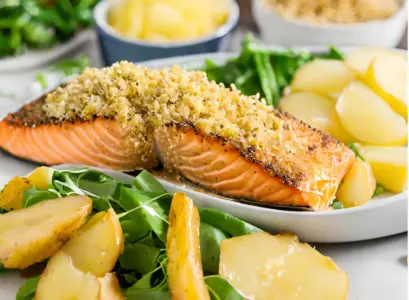
Day 1
Breakfast:
- 3 scrambled eggs with spinach and mushrooms (1 cup spinach, 1/2 cup mushrooms)
- 1 slice of bacon
Lunch:
- Grilled chicken salad (4 oz grilled chicken breast, 2 cups mixed greens, 1/2 cup cherry tomatoes, 1/4 cup cucumber, 1 tbsp olive oil, 1 tbsp balsamic vinegar)
Dinner:
- Baked salmon (6 oz) with lemon and dill
- Steamed broccoli (1 cup)
- 1 tbsp olive oil
Snacks:
- 1 oz almonds
- 1 small avocado with a pinch of sea salt
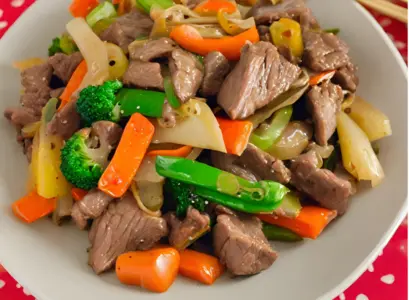
Day 2
Breakfast:
- 2 boiled eggs
- 1/2 avocado
Lunch:
- Tuna salad (4 oz tuna, 1 tbsp mayonnaise, 1 tbsp mustard, 1/4 cup diced celery, 1/4 cup diced red onion)
- Lettuce wraps (2 large lettuce leaves)
Dinner:
- Beef stir-fry (6 oz beef strips, 1 cup bell peppers, 1/2 cup broccoli, 1/2 cup snow peas, 1 tbsp soy sauce, 1 tsp sesame oil)
Snacks:
- 10 olives
- 1 oz cheese (cheddar or gouda)
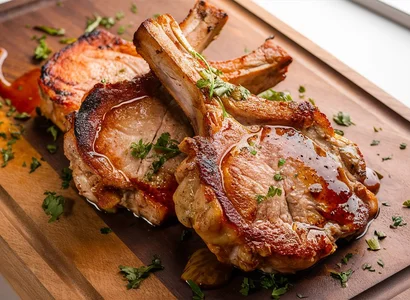
Day 3
Breakfast:
- Omelet with cheese (3 eggs, 1/4 cup cheese, 1/4 cup bell peppers)
Lunch:
- Shrimp salad (6 oz shrimp, 2 cups mixed greens, 1/2 avocado, 1/4 cup sliced radishes, 2 tbsp lemon vinaigrette)
Dinner:
- Grilled pork chops (6 oz)
- Roasted Brussels sprouts (1 cup)
- 1 tbsp olive oil
Snacks:
- 1 celery stick with 1 tbsp almond butter
- 1 small handful of macadamia nuts (1 oz)
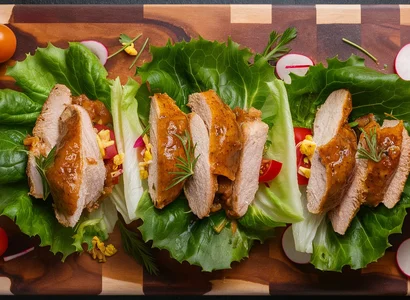
Day 4
Breakfast:
- Greek yogurt (1 cup, plain, full-fat) with 1 tbsp chia seeds
Lunch:
- Turkey lettuce wraps (4 oz sliced turkey, 2 large lettuce leaves, 1/4 avocado, 2 tbsp mayo, 1 tbsp mustard)
Dinner:
- Lemon garlic shrimp (6 oz shrimp, 1 tbsp olive oil, 1 tsp lemon juice, 1 clove garlic)
- Steamed asparagus (1 cup)
Snacks:
- 1 oz walnuts
- Sugar-free gelatin with whipped cream
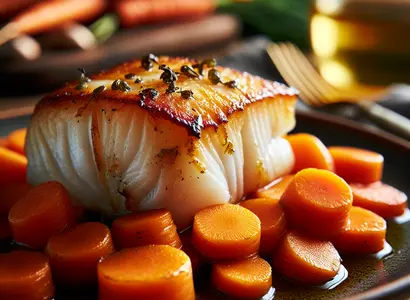
Day 5
Breakfast:
- 2 poached eggs with hollandaise sauce (1 tbsp sauce)
- Sautéed spinach (1 cup)
Lunch:
- Cobb salad (4 oz grilled chicken, 1 boiled egg, 2 cups mixed greens, 1/2 avocado, 1/4 cup blue cheese, 2 slices bacon, 2 tbsp ranch dressing)
Dinner:
- Baked cod (6 oz) with garlic butter (1 tbsp)
- Steamed carrots (1 cup)
Snacks:
- 1 small cucumber sliced with 1 tbsp hummus
- 1 oz pumpkin seeds
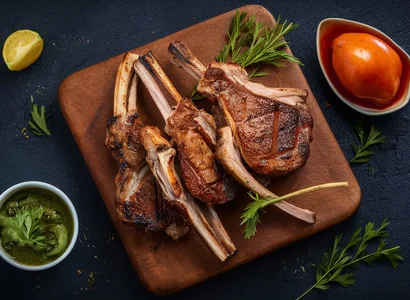
Day 6
Breakfast:
- Smoked salmon (3 oz) with cream cheese (2 tbsp)
- Cucumber slices (1/2 cup)
Lunch:
- Egg salad (3 boiled eggs, 2 tbsp mayo, 1 tsp mustard, 1/4 cup diced celery)
- Lettuce wraps (2 large lettuce leaves)
Dinner:
- Grilled lamb chops (6 oz)
- Roasted cauliflower (1 cup)
- 1 tbsp olive oil
Snacks:
- 1 string cheese
- 1 oz pecans
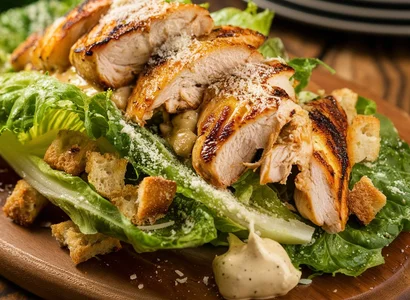
Day 7
Breakfast:
- Frittata with ham and cheese (3 eggs, 1/4 cup diced ham, 1/4 cup cheese)
Lunch:
- Grilled chicken Caesar salad (4 oz grilled chicken, 2 cups romaine lettuce, 1/4 cup Parmesan cheese, 2 tbsp Caesar dressing)
Dinner:
- Pan-seared steak (6 oz)
- Sautéed zucchini (1 cup)
- 1 tbsp olive oil
Snacks:
- 1 bell pepper sliced with 1 tbsp guacamole
- 1 small handful of Brazil nuts (1 oz)
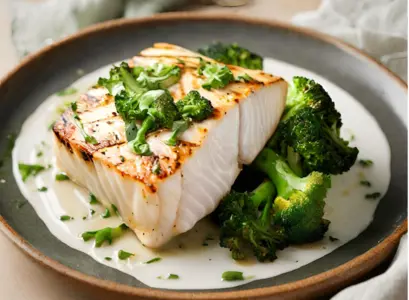
Day 8
Breakfast:
- 3 scrambled eggs with feta cheese (1/4 cup) and cherry tomatoes (1/2 cup)
Lunch:
- Chicken avocado salad (4 oz grilled chicken, 1/2 avocado, 2 cups mixed greens, 1/4 cup sliced red onion, 2 tbsp lime vinaigrette)
Dinner:
- Baked halibut (6 oz) with lemon herb butter (1 tbsp)
- Steamed broccoli (1 cup)
Snacks:
- 1 oz sunflower seeds
- 1 hard-boiled egg
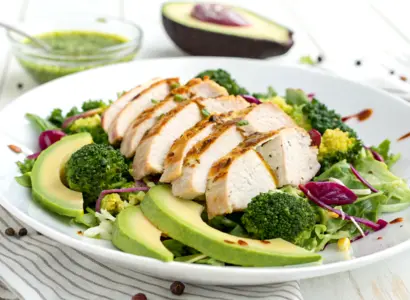
Day 9
Breakfast:
- Greek yogurt (1 cup, plain, full-fat) with 1/4 cup raspberries
Lunch:
- Salmon salad (4 oz canned salmon, 2 tbsp mayo, 1/4 cup diced cucumber, 1/4 cup diced bell peppers)
- Lettuce wraps (2 large lettuce leaves)
Dinner:
- Grilled chicken with avocado (4 oz of grilled chicken breast, 1/2 of a ripe avocado sliced, served with 1 cup of mixed greens)
Snacks:
- 1 oz almonds
- 1 oz cheese (mozzarella or Swiss)
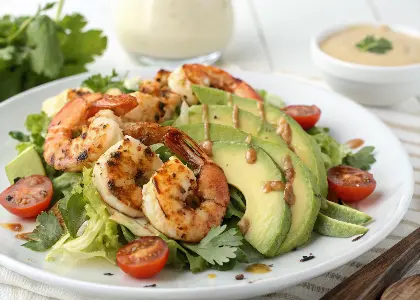
Day 10
Breakfast:
- Omelette with spinach and goat cheese (3 eggs, 1 cup spinach, 1/4 cup goat cheese)
Lunch:
- Shrimp and avocado salad (6 oz shrimp, 1/2 avocado, 2 cups mixed greens, 1/4 cup cherry tomatoes, 2 tbsp olive oil, 1 tbsp lemon juice)
Dinner:
- Baked chicken thighs (6 oz) with rosemary and garlic
- Roasted Brussels sprouts (1 cup)
Snacks:
- 1 small handful of pistachios (1 oz)
- 1 oz cashews
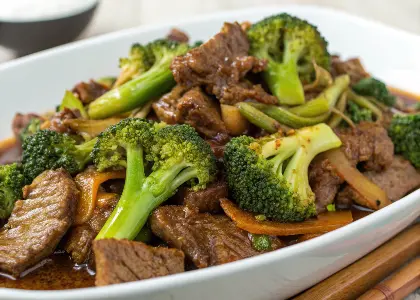
Day 11
Breakfast:
- Bacon and mushroom frittata (3 eggs, 2 slices bacon, 1/2 cup mushrooms)
Lunch:
- Turkey and cheese roll-ups with lettuce and mustard (4 oz turkey, 2 slices cheese, 2 large lettuce leaves, 1 tbsp mustard)
Dinner:
- Lean beef with broccoli stir fry (4 oz of lean beef strips stir-fried with 1 to 1.5 cups of broccoli in 1 tsp sesame oil, garlic, and low-sodium soy sauce)
Snacks:
- 2 celery sticks with cream cheese
- 1 oz pecans
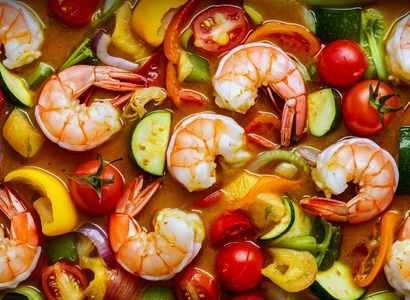
Day 12
Breakfast:
- Bacon and mushroom frittata (3 eggs, 2 slices bacon, 1/2 cup mushrooms)
Lunch:
- One-pan summer vegetable ragú (4 oz ground turkey, 1 cup mixed vegetables, 1 tbsp olive oil)
Dinner:
- Sheet-pan garlicky shrimp and veggies (6 oz shrimp, 1 cup mixed vegetables, 1 tbsp olive oil, 1 clove garlic)
Snacks:
- 1 oz walnuts
- 1 small cucumber sliced with 1 tbsp hummus
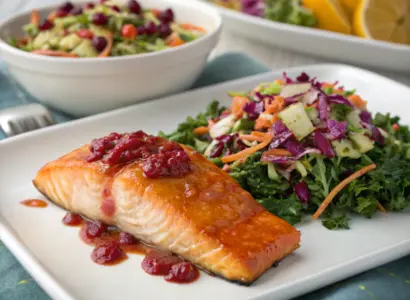
Day 13
Breakfast:
- Crustless quiche with spinach, feta, and bacon (3 eggs, 1 cup spinach, 1/4 cup feta, 2 slices bacon)
Lunch:
- Cheeseburger cabbage wraps (6 oz ground beef, 2 large cabbage leaves, 1/4 cup cheese, 1 tbsp mayo, 1 tbsp mustard)
Dinner:
- Grilled salmon with sautéed kale (4 oz of grilled salmon, 1 cup of sautéed kale with garlic and olive oil)
Snacks:
- 1 small cucumber sliced with 1 tbsp hummus
- 1 oz pumpkin seeds
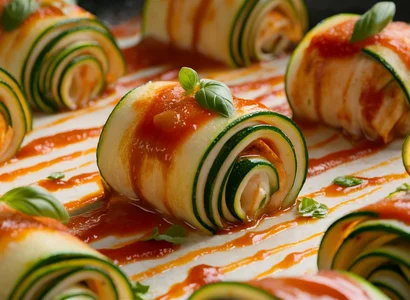
Day 14
Breakfast:
- Pizza frittata (3 eggs, 1/4 cup cheese, 1/4 cup pepperoni, 1/4 cup bell peppers)
Lunch:
- Caprese chicken stuffed peppers (4 oz grilled chicken, 2 bell peppers, 1/4 cup mozzarella, 1/4 cup cherry tomatoes, 1 tbsp balsamic vinegar)
Dinner:
- Zucchini lasagna roll-ups (6 oz ground beef, 2 zucchini, 1/4 cup ricotta, 1/4 cup marinara sauce, 1/4 cup mozzarella)
Snacks:
- 1 string cheese
- 1 small handful of macadamia nuts (1 oz)
Foods to Include in a No Carb Diet
A no carb diet focuses on foods that have negligible or zero carbohydrate content. Here’s a detailed list of low carbs or no carb foods:
1. Animal Proteins
Animal proteins are a cornerstone of a no carb diet as they provide essential nutrients and contain almost no carbohydrates.
- Eggs: A versatile protein source that can be cooked in various ways.
- Beef: Includes cuts like steak, ground beef, and organ meats like liver (though liver contains a small amount of carbs).
- Chicken: All parts of the chicken, including breast, thighs, and wings.
- Pork: This includes pork chops, ham, and bacon. Be cautious with bacon as some processed versions may have added sugars.
- Lamb: A rich source of protein with minimal carbs.
- Turkey: Both white and dark meat are acceptable.
- Veal: A tender and low-carb option.
- Jerky: Ensure it’s free from added sugars and carbs.
2. Seafood
Seafood is rich in omega-3 fatty acids and other essential nutrients, making it an excellent choice for a no carb diet.
- Fish: Includes salmon, trout, sardines, tuna, and cod, all of which have zero carbs.
- Shellfish: Options like shrimp, crab, lobster, and mussels (check carb content as some shellfish might contain small amounts).
- Other Seafood: Octopus, clams, scallops, squid, and oysters offer variety with minimal carbs.
3. Fats and Oils
Fats and oils are crucial for energy and satiety in a no carb diet.
- Butter: A dairy product with zero carbs.
- Ghee: Clarified butter that is free from lactose and casein.
- Olive Oil: A heart-healthy oil perfect for cooking and salads.
- Avocado Oil: Another healthy fat option with no carbs.
- Coconut Oil: A versatile oil that can be used in cooking and baking.
- MCT Oil: Extracted from coconut oil, it’s popular in keto diets for quick energy.
4. Dairy (Full-fat)
Only certain dairy products are suitable, primarily those with minimal carbs.
- Cheese: Most cheeses like cheddar, mozzarella, and cream cheese have very low carb content.
- Heavy Cream: Can be used in cooking and coffee.
- Full-fat Yogurt: Opt for plain versions without added sugars.
5. Low-Carb Vegetables
While a no carb diet is very restrictive, some low-carb vegetables can be included in minimal amounts to provide fiber and micronutrients.
- Leafy Greens: Spinach, kale, arugula, and Swiss chard are very low in carbs.
- Cruciferous Vegetables: Broccoli, cauliflower, Brussels sprouts, and cabbage.
- Other Vegetables: Zucchini, asparagus, celery, and mushrooms.
6. Nuts and Seeds
Though not zero carb, certain nuts and seeds are low in carbs and can be consumed in moderation.
- Macadamia Nuts: One of the lowest carb nuts.
- Pecans: Also low in carbs.
- Flaxseeds: Another fiber-rich option to use in small amounts.
7. Beverages
Hydration is crucial, and certain beverages fit well within a no carb diet.
- Water: The best option for staying hydrated.
- Coffee: Black coffee contains no carbs.
- Tea: Unsweetened tea is carb-free.
- Carbonated Water: Ensure it’s sugar-free.
Foods to Avoid on a No Carb Diet
Embarking on a no carb diet requires meticulous planning and careful food selection to ensure the elimination of virtually all carbohydrates.
Below is a detailed list of foods with carbs that should be avoided on a no carb diet:
1. Grains and Grain-Based Products
- Bread and Bakery Items: This includes all types of bread (white, whole grain, rye), cookies, cakes, pastries, and other baked goods.
- Pasta: All forms of pasta, whether made from wheat, rice, or any other grain, should be avoided.
- Cereals: Both hot and cold cereals, including oatmeal and granola, are high in carbs and should be excluded.
2. Starchy Vegetables
- Potatoes: All varieties, including sweet potatoes, yams, and regular potatoes.
- Corn: This includes products made from corn such as cornmeal, corn tortillas, and popcorn.
- Other Starchy Vegetables: These include peas, lentils, and beans, which are high in carbohydrates.
3. Fruits
- High-Carb Fruits: Bananas, grapes, apples, pears, and mangoes are high in sugars and should be avoided.
- Dried Fruits: These are concentrated sources of sugar and carbs, including raisins, dates, and dried apricots.
- Fruit Juices: Even without added sugar, fruit juices are high in natural sugars and carbohydrates.
4. Dairy Products
- Milk: Both whole and skim milk contain lactose, a natural sugar.
- Sweetened Yogurts: Flavored and sweetened yogurt varieties often contain as many carbs as desserts.
- Processed Cheeses: While most cheeses are low in carbs, some processed cheese products may contain more carbohydrates.
5. Sugary Foods and Beverages
- Sugary Drinks: Soft drinks, sweetened teas, energy drinks, and sports drinks.
- Sweets and Snacks: Candy, chocolate, ice cream, cookies, and other sugary snacks.
- Added Sugars: Any form of added sugar, including honey, agave syrup, maple syrup, and regular table sugar.
6. Alcoholic Beverages
- Beer: High in carbohydrates due to its grain content.
- Sweet Wines: These contain more sugar and should be avoided in favor of dry wines and spirits.
7. Processed Foods
- Pre-packaged Meals: These often contain hidden sugars and carbs.
- Snack Foods: Chips, crackers, pretzels, and other processed snacks are typically high in carbs.
- Certain Sauces and Dressings: Some commercial dressings and sauces, especially those labeled as “low-fat” or “fat-free,” often contain added sugars and carbs.
8. Legumes
- Beans and Lentils: These are relatively high in carbs and should be excluded from a no carb diet.
- Peas and Chickpeas: These also fall into the category of high-carb legumes
Benefits of a No Carb Diet
Following a no carb diet, also known as a zero-carb or very low-carb diet, can have several potential benefits, including:
- Weight Loss: By eliminating carbs, the body is forced to burn stored fat for energy, leading to weight loss. Additionally, low-carb diets are often associated with reduced appetite, leading to lower calorie intake.
- Improved Blood Sugar Control: For individuals with diabetes or insulin resistance, a no carb diet can lead to better blood sugar control and reduced insulin resistance.
- Better Triglyceride Levels: Low-carb diets have been shown to reduce triglyceride levels, which are a risk factor for heart disease.
- Increased HDL (Good) Cholesterol: Some studies have shown that low-carb diets can lead to an increase in high-density lipoprotein (HDL) cholesterol, which is beneficial for heart health.
- Reduced Risk of Metabolic Syndrome: Metabolic syndrome is a cluster of conditions that increase the risk of heart disease, stroke, and type 2 diabetes.
- Improved Mental Clarity: Some individuals report improved mental focus and clarity when following a no carb diet, often referred to as the “low-carb brain boost.”
- Reduced Inflammation: Low-carb diets have been associated with reduced markers of inflammation in the body, which is beneficial for overall health and may reduce the risk of chronic diseases.
- Better Control of Hunger and Appetite: Some people find that reducing carbs helps control hunger and cravings, making it easier to maintain a calorie deficit for weight loss.
- Stabilized Energy Levels: By relying on fat for energy, individuals on a no carb diet may experience more stable energy levels throughout the day.
- Potential Treatment for Certain Medical Conditions: Low-carb diets have been used as a therapeutic approach for conditions such as epilepsy, polycystic ovary syndrome (PCOS), and non-alcoholic fatty liver disease (NAFLD).
Conclusion
In conclusion, a no carb diet, also known as a zero-carb or very low-carb diet, offers potential benefits such as weight loss, improved blood sugar control, better lipid profiles, and reduced inflammation.
Additionally, it may lead to increased mental clarity, better appetite control, and stabilized energy levels.
However, it’s important to approach such a diet with caution, considering individual health needs and long-term sustainability.
Consulting a healthcare professional before embarking on a no carb diet is advisable to ensure that it aligns with personal health goals and requirements.
- 7-day animal-based diet
- Vegetarian diet meal plan
- 7-day GOLO meal plan
- Paleo diet meal plan
- 7-day plant paradox diet
- Benefits of pineapple for women
- 50 soft foods to eat after oral surgery
- One Meal a Day diet plan
- Whole foods diet plan
- 7-day blue zone diet for beginners
- 7-day DASH diet for beginners
- 1200 calorie meal plan recipes
- Anti inflammation dinner recipes
FAQs
Is a zero carb diet healthy?
A zero carb diet, also known as a no carb diet, isn’t considered healthy in the long term. Consuming zero carbs can lead to nutrient deficiencies, as many essential nutrients come from carbohydrate-containing foods.
What happens if you eat no carbs for a week?
If you eat no carbs for a week, your body may enter a state called ketosis, where it breaks down fat into ketones for energy. This can lead to side effects like bad breath, headache, fatigue, and weakness.
How much weight can you lose on a no carb diet?
On average, individuals on a no carb diet can lose 3 to 5 pounds per week, although some may experience more rapid weight loss initially due to water weight loss.
Will cutting carbs reduce belly fat?
Cutting carbs may help reduce belly fat, especially in the short term. Some studies suggest that carb-restricted diets may lead to greater short-term weight loss, including loss of abdominal fat.
What is the number one worst carb?
There isn’t a single “worst” carb, but refined carbs like those found in white bread, pasta, and sugary snacks are often considered less healthy than complex carbs found in whole grains, fruits, and vegetables.
Resources
- A systematic review on low-carbohydrate diets and their association with all-cause mortality.
- Dietary carbohydrate restriction improves metabolic syndrome independent of weight loss.
- Effects of low-carb diets on appetite, blood glucose levels, and insulin resistance in obese patients with type 2 diabetes.
